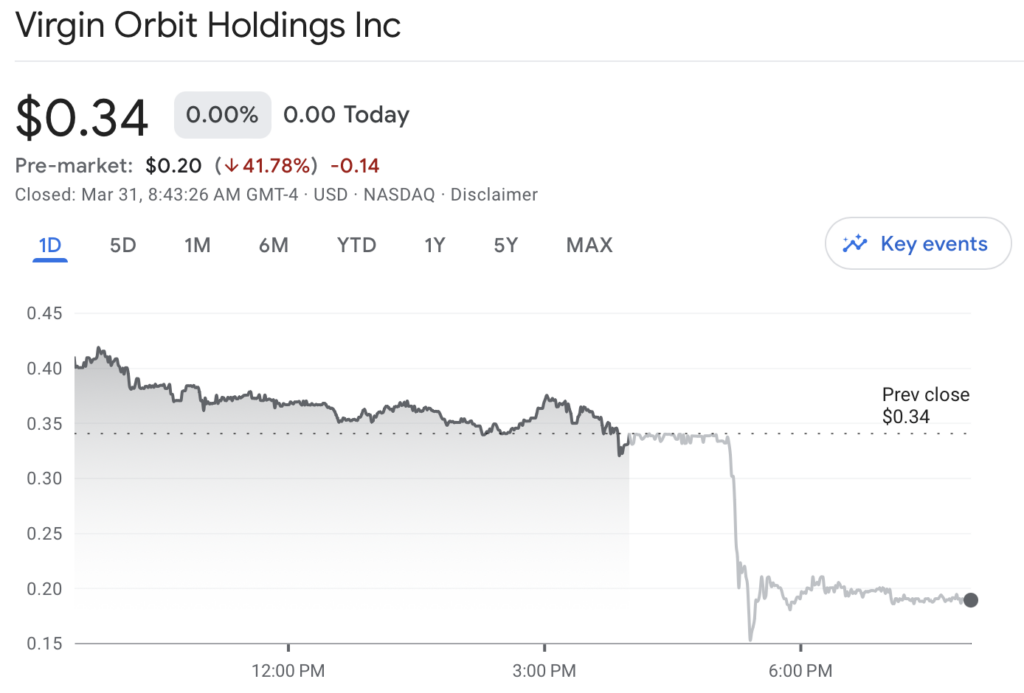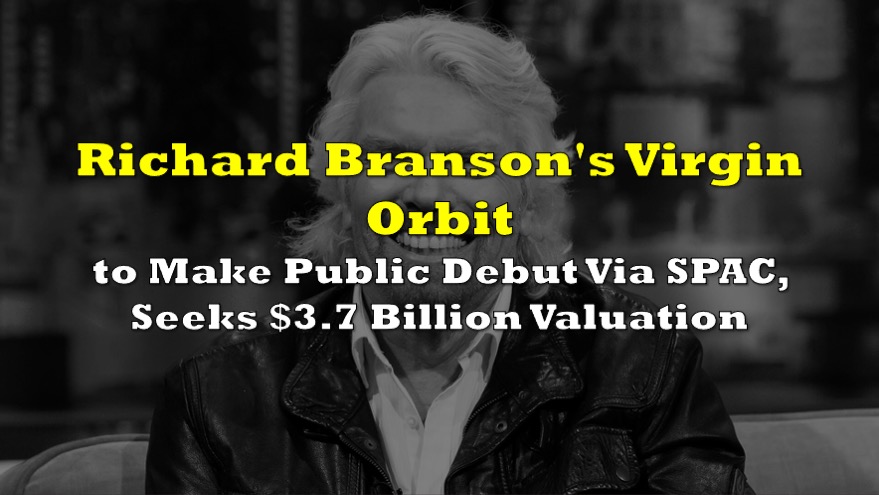Virgin Orbit (NASDAQ: VORB), the satellite launch company founded by billionaire Sir Richard Branson, will cease operations “for the foreseeable future” after failing to secure a funding lifeline, CEO Dan Hart announced Thursday afternoon during an all-hands meeting.
According to the Financial Times, Hart was making last-ditch efforts to reach an agreement with financial investors, but notified employees on Thursday that operations would be suspended permanently.
“Unfortunately, we’ve not been able to secure the funding to provide a clear path for this company,” Hart said, according to audio of the 5 p.m. ET meeting obtained by CNBC. “We have no choice but to implement immediate, dramatic and extremely painful changes.”
This comes as the company announced it is laying off 85% of its employees after failing to get new financing, sparking concerns that the company is on the verge of bankruptcy.
“On March 30, 2023, the Company announced a workforce reduction of approximately 675 employees, constituting approximately 85% of the Company’s workforce in order to reduce expenses in light of the Company’s inability to secure meaningful funding,” the company said in a filing. This leaves around a little over 100 employees left to run the satellite maker.
According to Hart, Virgin Orbit will “provide a severance package for every departing” employee, including a cash payment, benefit extension, and assistance in finding a new career — with a “direct pipeline” set up with sister business Virgin Galactic for hiring.
The company predicted incurring expenses of approximately $15 million related to the layoffs, of which $8.8 million would be for severance payments and employee benefit costs. Virgin Orbit also reported in the filing that it obtained a $10.9 million senior secured convertible note from Branson’s Virgin Investments Limited mainly to use the proceeds to fund the severance and other costs.
Due to financial concerns, Virgin Orbit went into “operational pause” in mid-March and placed the majority of its 750 staff on unpaid leave. A week later, it restarted some work with a “small staff.” During the longer break, Virgin Orbit had been working to complete its study into the mid-flight failure of its previous launch, as well as to complete preparations for its next rocket.
Later on, Hart informed employees through email that the furlough for a majority of its workforce will be extended until the recent layoff announcement.
Multiple sources said Virgin Orbit’s late-stage conversations with Texas-based investor Matthew Brown fell through and were officially called off late last week. Brown planned to spend $200 million in the company, which would give the investor a controlling share.
According to CNBC’s Investing in Space newsletter, Branson, who presently owns 75 percent of the corporation, doesn’t even want to own the company anymore. Virgin Group appears to have been scrambling to secure money for the company in order to escape bankruptcy.
Shareholders dumped the stock in extended trading on Thursday, with shares dropping more than 40% following the announcement. Virgin Orbit closed at $0.34 at the end of the regular session, down 82% from the start of the year.

The layoffs came two months after Virgin Orbit failed to launch the first satellite from British soil in January. The unsuccessful launch, which was supposed to be a historic moment for the UK, was the consequence of a “anomaly” that caused the rocket to fail to reach the proper altitude and was later lost, according to the business.
Last month, Virgin Orbit announced that its study into the failed flight was “nearly complete” and that “our next production rocket with the needed modification incorporated is in the final stages of integration and test.”
Information for this briefing was found via CNBC, Engadget, The Guardian, and the sources mentioned. The author has no securities or affiliations related to this organization. Not a recommendation to buy or sell. Always do additional research and consult a professional before purchasing a security. The author holds no licenses.







